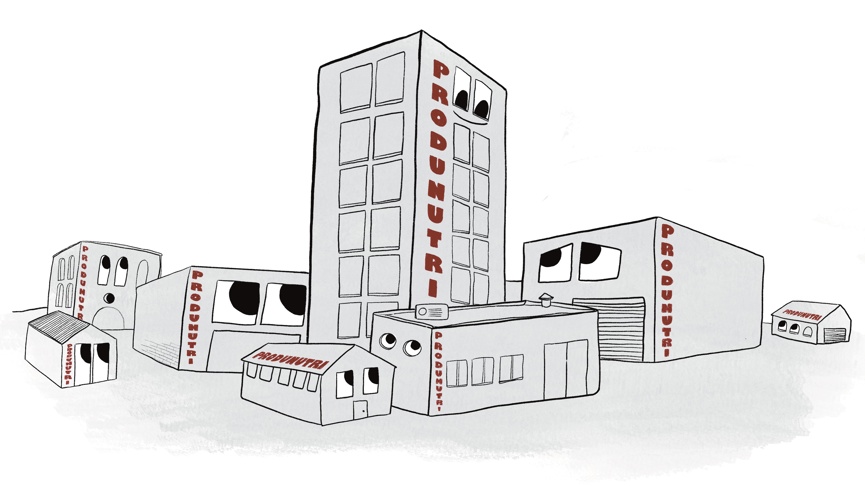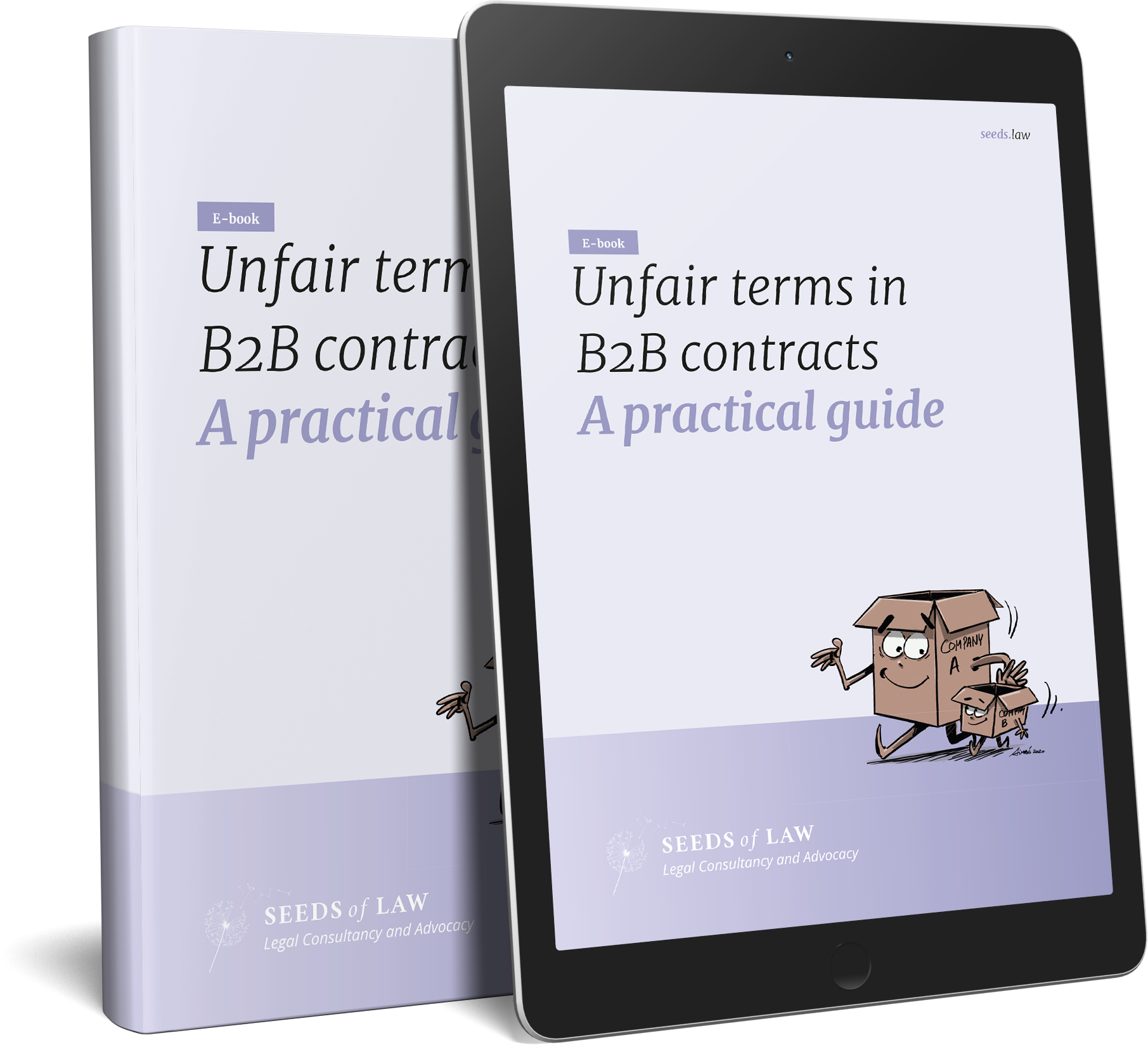- Commercial and Economic Law
- unlawful terms for franchise agreements with supermarkets , unlawful terms for franchise agreements , unlawful terms , supermarkets , contractual balance between businesses , food retail sector , dominant position of the supermarket chains , commercial cooperation agreement , franchise agreement , clauses on the ‘black list’ , clauses on the ‘grey list’ , clauses that are too one-sided , supermarket operator , supermarket chain
Since December 2020, the Code of Economic Law (WER/CDE) has considered a number of clauses to be ‘unlawful’ in a B2B context.
But specifically for commercial partnership agreements in the (convenience) supermarket sector, a range of additional unlawful terms are now being considered.
We look at the precise implications of these new rules below.

1. Why this new legislation?
By analogy with what already existed for B2C contracts (contracts between businesses and consumers) since the 1990s, effective 1 December 2020, the legislator has also introduced rules for B2B contracts (contracts between businesses) under which certain terms are classified as unlawful.
False Read alsoDiscover our e-book about unfair terms in B2B contracts
In our e-book “Unfair terms in B2B contracts” you will discover a number of interesting tips to familiarize yourself with the new principles of the B2B law.

The regulation provides, on the one hand, a general standard for unlawful terms and, on the other hand, a list of specific unlawful terms. With regard to this list, a distinction is made between terms that are prohibited in all circumstances (the ‘black list’) and terms that, until proven otherwise, are presumed to be unlawful (the ‘grey list’). These include, for example, clauses waiving all recourse against the other party (‘black list’) or excessive damages clauses (‘grey list’).
The intention of the regulation on unlawful terms in a B2B context is to safeguard the contractual balance between businesses, particularly where one of the two parties is economically much stronger.
However, the legislator has realised that this regulation is not sufficient for certain sectors. In 2021, for example, an additional regime has been provided for unlawful terms in the agricultural and food supply chain.
With regard to the food retail sector (i.e. mainly the well-known supermarket chains), the legislator also determined that the general B2B rules on unlawful terms were not sufficient. This sector is also characterised by the dominant position of a limited number of major players (the supermarket chains). This dominant position of the supermarket chains may mean that the independent operators of the supermarkets are forced to accept certain conditions that are very unfavourable to them, such as, for example, exclusive supply clauses, the application of maximum prices or the obligation to follow promotions.
To remedy the excessive imbalance between supermarket chains and their independent operators, the existing B2B rules on unlawful terms for this sector are supplemented by a number of sector-specific provisions.
2. To whom do these new rules apply?
The new rules apply to ‘commercial cooperation agreements’, in practice franchise agreements with so-called non-specialist retail outlets selling mainly food, drinks and tobacco, i.e. supermarkets and superettes.
The law defines a commercial cooperation agreement as an agreement whereby one party (the ‘supplier’) grants the other (the ‘assignee’) the right to use a commercial formula for the sale of products or the provision of services.
In practice, the additional provisions relating to unlawful terms therefore apply to (franchise) agreements between a supermarket chain and its independent operators.
3. Unlawful terms extended to the food retail sector
In order to protect the contractual balance between these two parties, the new regulation provides for an additional list of unlawful terms specific to the sector.
This includes a ‘black list’ of terms that are prohibited in all circumstances, and a ‘grey list’ of terms that are presumed to be unlawful until proven otherwise.
The following clauses are on the ‘black list’ and are therefore always prohibited:
- clauses prohibiting the operator from sourcing from other suppliers even if the supermarket chain does not deliver on time or correctly;
- clauses that prevent the operator from preparing for a new or similar activity during the notice period or the duration of the non-competition obligation;
- clauses obliging the operator to bear more than half of the costs resulting from promotional actions imposed by the supplier;
- clauses declaring as the only competent court the court at the head office of the supermarket chain or a court in a language region other than the court at the operator's place of business.
The following clauses appear on the ‘grey list’ and are therefore presumed, until proven otherwise, to be unlawful:
- clauses giving the supermarket chain the right to take over the operator's supermarket at a very low fixed price;
- clauses preventing the operator from terminating the contract without further compensation if the supermarket/superette is structurally loss-making for 12 months;
- clauses allowing the supermarket chain to terminate the commercial cooperation agreement with the operator under an express termination clause.
Supermarket chains wishing to include any of the ‘grey clauses’ in their (franchise) agreements would do well to place these clauses in a clear context in which they can be justified.
4. Conclusion
These new rules prohibit clauses that are too one-sided and therefore aim to better protect the economically weaker party in the supermarket sector (the supermarket operator) against the economically stronger party (the supermarket chain).
It is in the interests of both supermarket chains and supermarket operators to be well informed on this subject. For supermarket chains, it is important to avoid finding themselves in a situation where it turns out that they cannot ultimately rely on a particular clause. Operators should be aware of the legal protection they can invoke if they are faced with unreasonable clauses.
If you would like assistance or more information on this subject, please do not hesitate to contact our specialists on +32 (0)2 747 40 07 or info@be.Andersen.com.
Read also





